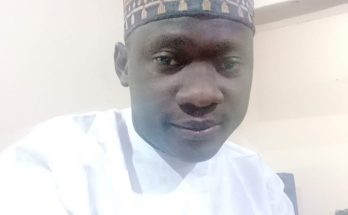Nigeria is a country of immense potential, and the contributions of women have been instrumental in its social, political, and economic development. From the fight for independence to the struggle for gender equality, Nigerian women have played a significant role in driving progress, prosperity, and improving living conditions in the country.
Nigerian women have been at the forefront of campaigns for better healthcare, education and employment opportunities; as well as advocating for greater representation in political decision-making. Despite facing several challenges, their courage and determination has enabled them to overcome these challenges to make a lasting impact on Nigerian society.
From grassroots activism to high-level decision-making roles, Nigerian women have been involved in every aspect of Nigerian society. They have taken on leadership roles within their communities and actively participated in government initiatives that promote social justice and economic growth. Women are also increasingly taking on entrepreneurial roles that create jobs and foster innovation. Through their hard work and dedication, Nigerian women are helping their country reach its full potential.
Throughout Nigeria’s history, there have been a number of women who have made significant contributions to the social, economic and political development of the country. From the pre-colonial period to this present day, these women have played an important role in shaping Nigeria’s history and culture.
From Nana Asma’u, a 19th century female Islamic scholar who wrote extensively on education and social reform; to Funmilayo Ransome-Kuti, a prominent feminist and civil rights campaigner; to Amina Lawal, an inspirational advocate for women’s rights; these women have all made great strides in promoting gender equality in Nigeria, and their work has had far-reaching implications for Nigerian society as a whole.
Another woman in contemporary history that has made significant contributions to promoting gender equality in Nigeria is Cesnabmihilo Dorothy Nuhu-Aken’Ova.
Dorothy is a prominent Nigerian activist who has dedicated her life to fighting for the rights of women and children, including advocating for their education, healthcare, and protection against violence and abuse. She is also well-versed in politics, having aspired to contest for the seat of the Nigerian President under the Social Democratic Party (SDP) in 2023, but due to schemes against Women which she couldn’t withstand, she left the party and joined the All Progressives Congress and is a Chieftain for good governance towards growth and development.
As the founder and Executive Director of “INCRESE”, a non-governmental organization responsible for children and women’s rights, as well as advocating for good governance and democracy in Nigeria. Dorothy has advocated for gender equality, women’s health and reproductive rights, and the elimination of violence against women and girls. She was part of the team that drafted Nigeria’s Child Rights Act which was signed into law in 2003.
Dorothy worked with the United Nations Children’s Fund (UNICEF) to develop interventions for reducing maternal mortality in Nigeria. She also played a significant role in Nigeria’s democracy, serving as a member of the technical committee responsible for developing a National Gender Policy, which was adopted by the Nigerian Government in 2006.
Dorothy’s expertise in politics and women and child rights activism has made a significant impact in Nigeria and beyond.
Dorothy Aken’Ova, who is the founder of the Social Change Initiative, urged President Tinubu to prioritize women’s representation in his cabinet as a way of promoting gender equity and empowering women in Nigeria.
She noted that women have been historically marginalized in Nigerian politics and urged the President to take bold steps towards addressing this longstanding issue.
According to Aken’Ova, the inclusion of women in his government should ensure that they are given significant positions to contribute to the development and growth of the country.
She emphasized the importance of gender diversity in leadership, stating that it creates more balance and equality in decision-making processes. She also pointed out that women make up a significant proportion of Nigeria’s population and should be well-represented in all aspects of governance.
Aken’Ova further stated that the 35 percent United Nation’s Affirmative Action, a start line to gender parity, has not been met by previous administrations. She urged President Tinubu to uphold this policy and ensure that more women are appointed to key positions in his administration.
In conclusion, Aken’Ova praised President Tinubu for his innate resilience, foresight, strong and courageous leadership prowess, aptly depicted by his title “Jagaba”. She expressed confidence in Jagaban Borgu to realize the 35% Affirmative Action in his government.
Muhammad Isah writes from Abuja




